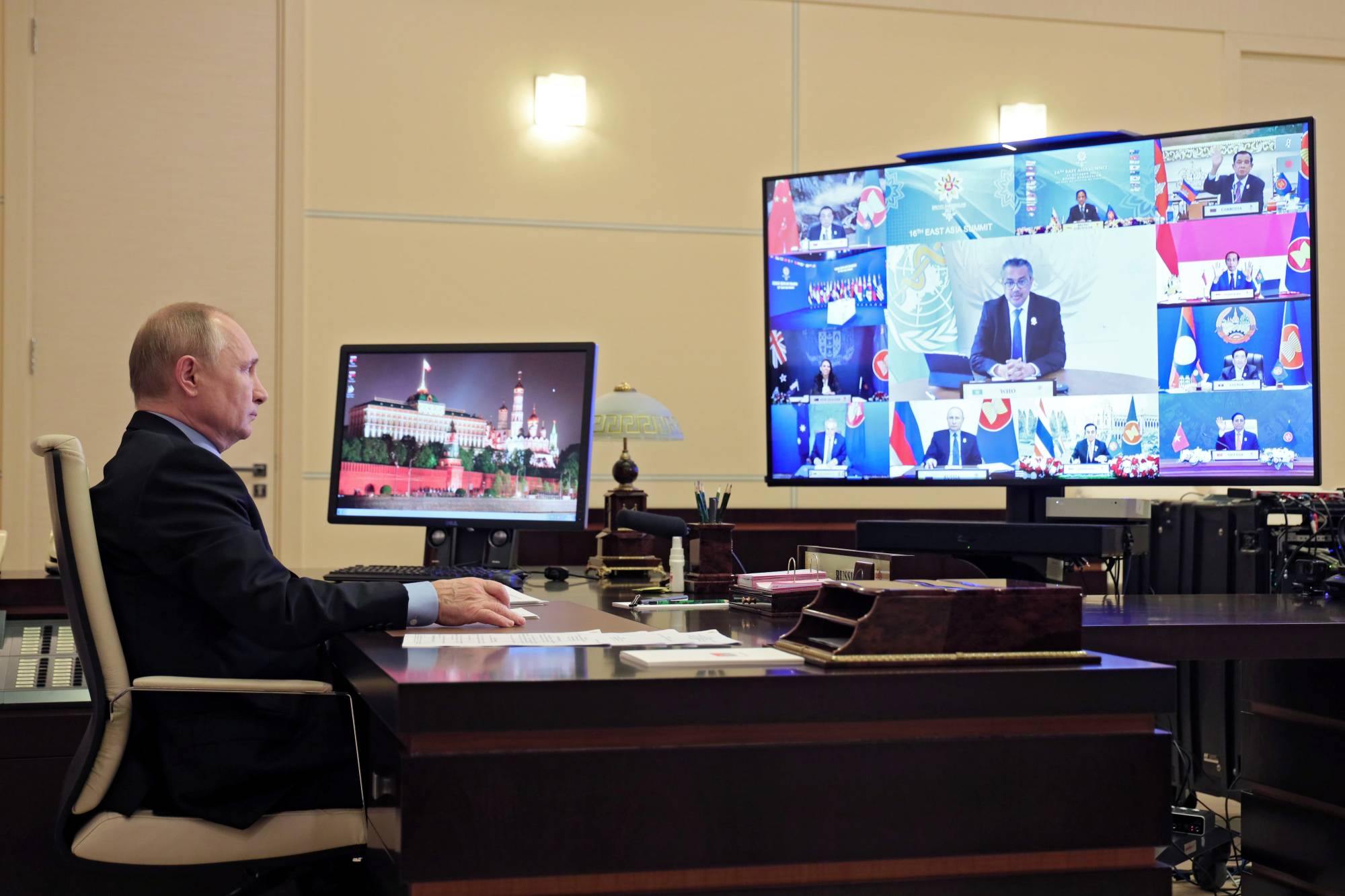Russia’s attack on Ukraine seems to have united Europe and many other democracies in the West, which were until fairly recently squabbling over trade, defense agreements, COVID-19 policies and other issues.
European countries and the United States have consulted closely over their response to Russia’s incursion, putting together a range of tough measures against Moscow that includes cutting Russian businesses off from much of the global financial system, banning Russian planes from much of the airspace over Europe and North America, and introducing heavy sanctions. What’s more, the member states of the North Atlantic Treaty Organization are sending weapons into Ukraine, including rocket launchers and surface-to-air missiles.
In many ways, the Ukraine conflict seems like a defining moment in which democracies could band together against an authoritarian power. But while the hostilities have sparked greater unity in the West, the reactions in Asia, even among Asian democracies, have been mixed, suggesting that Washington, Paris and Berlin cannot take for granted that democratic countries around the world will necessarily unite because of the Ukraine invasion.


















With your current subscription plan you can comment on stories. However, before writing your first comment, please create a display name in the Profile section of your subscriber account page.